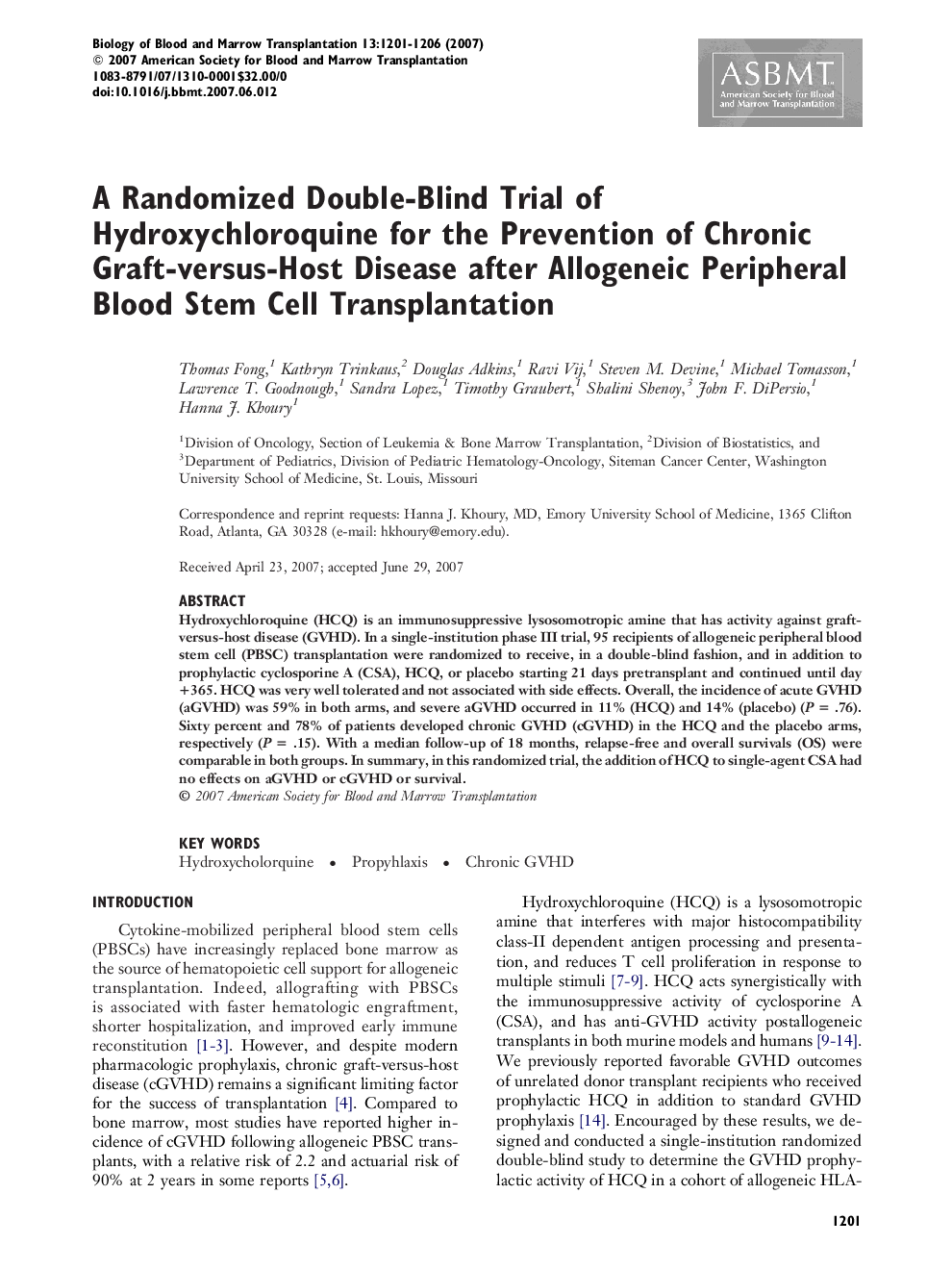| Article ID | Journal | Published Year | Pages | File Type |
|---|---|---|---|---|
| 2104962 | Biology of Blood and Marrow Transplantation | 2007 | 6 Pages |
Hydroxychloroquine (HCQ) is an immunosuppressive lysosomotropic amine that has activity against graft-versus-host disease (GVHD). In a single-institution phase III trial, 95 recipients of allogeneic peripheral blood stem cell (PBSC) transplantation were randomized to receive, in a double-blind fashion, and in addition to prophylactic cyclosporine A (CSA), HCQ, or placebo starting 21 days pretransplant and continued until day +365. HCQ was very well tolerated and not associated with side effects. Overall, the incidence of acute GVHD (aGVHD) was 59% in both arms, and severe aGVHD occurred in 11% (HCQ) and 14% (placebo) (P = .76). Sixty percent and 78% of patients developed chronic GVHD (cGVHD) in the HCQ and the placebo arms, respectively (P = .15). With a median follow-up of 18 months, relapse-free and overall survivals (OS) were comparable in both groups. In summary, in this randomized trial, the addition of HCQ to single-agent CSA had no effects on aGVHD or cGVHD or survival.
